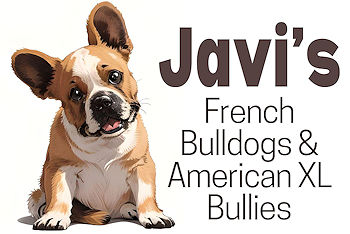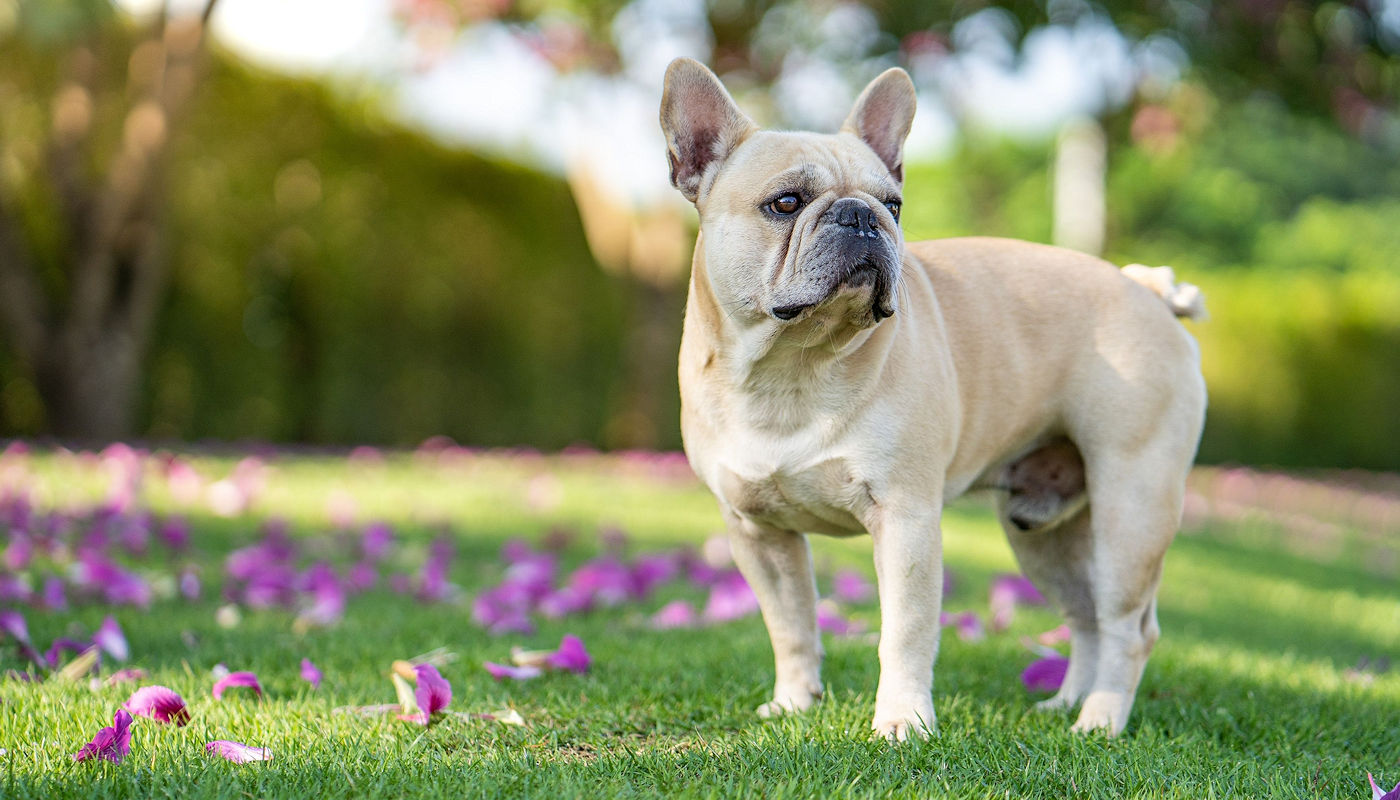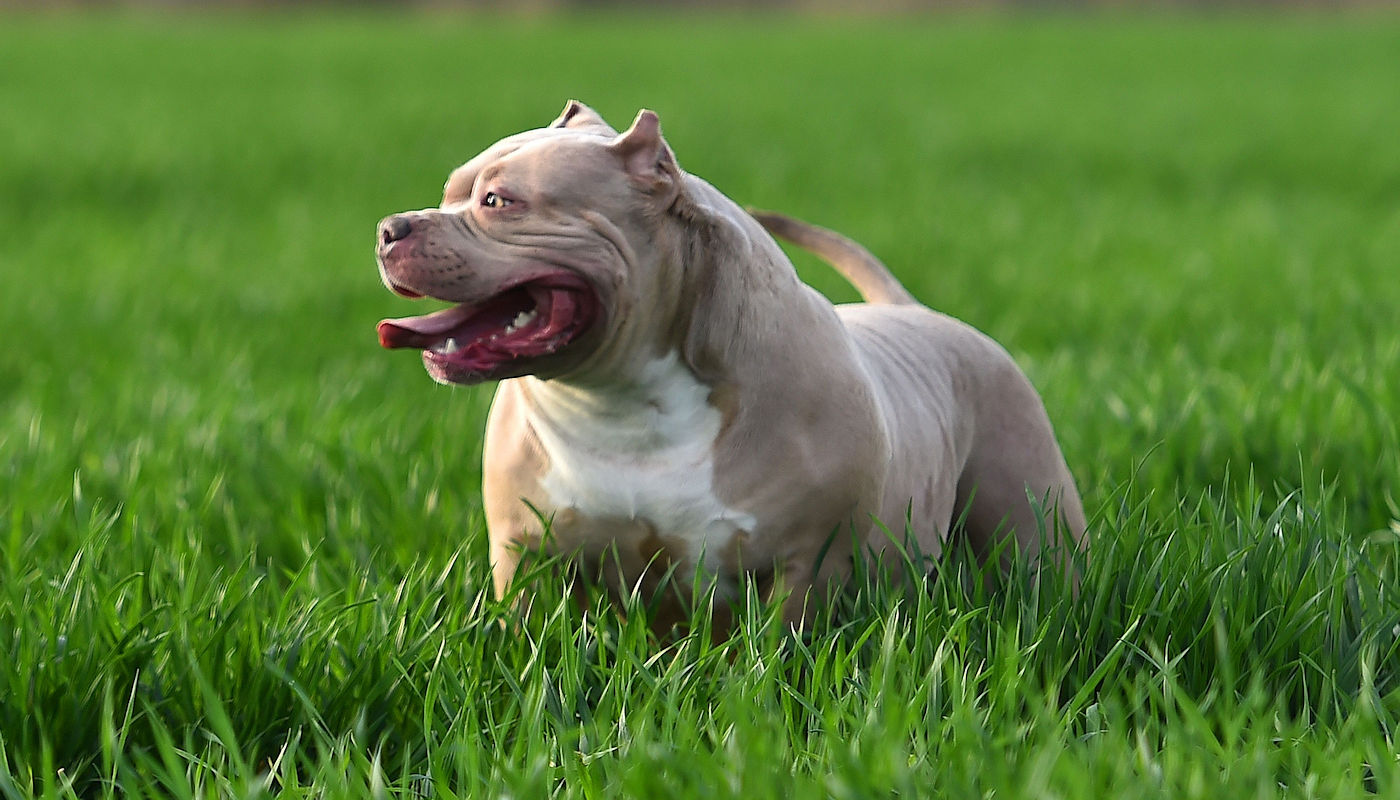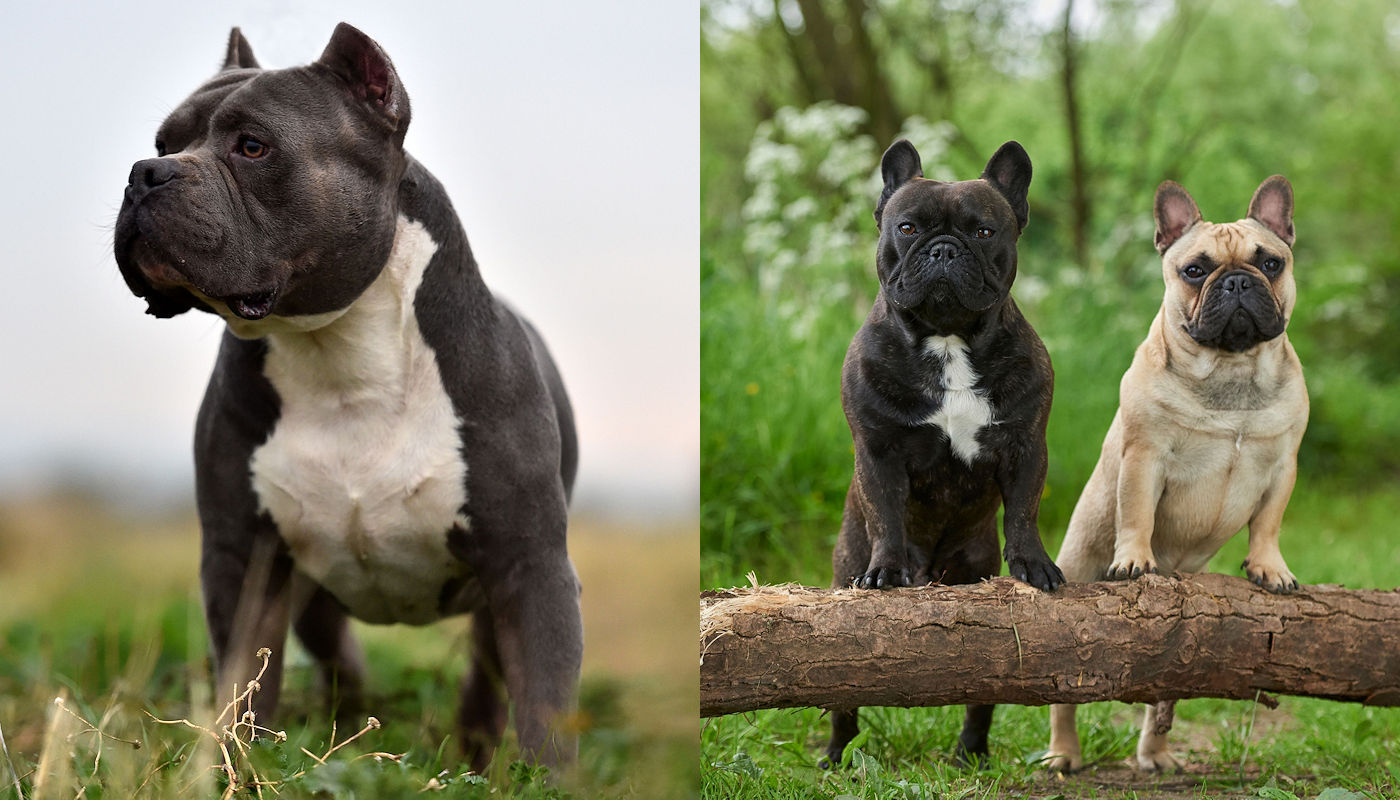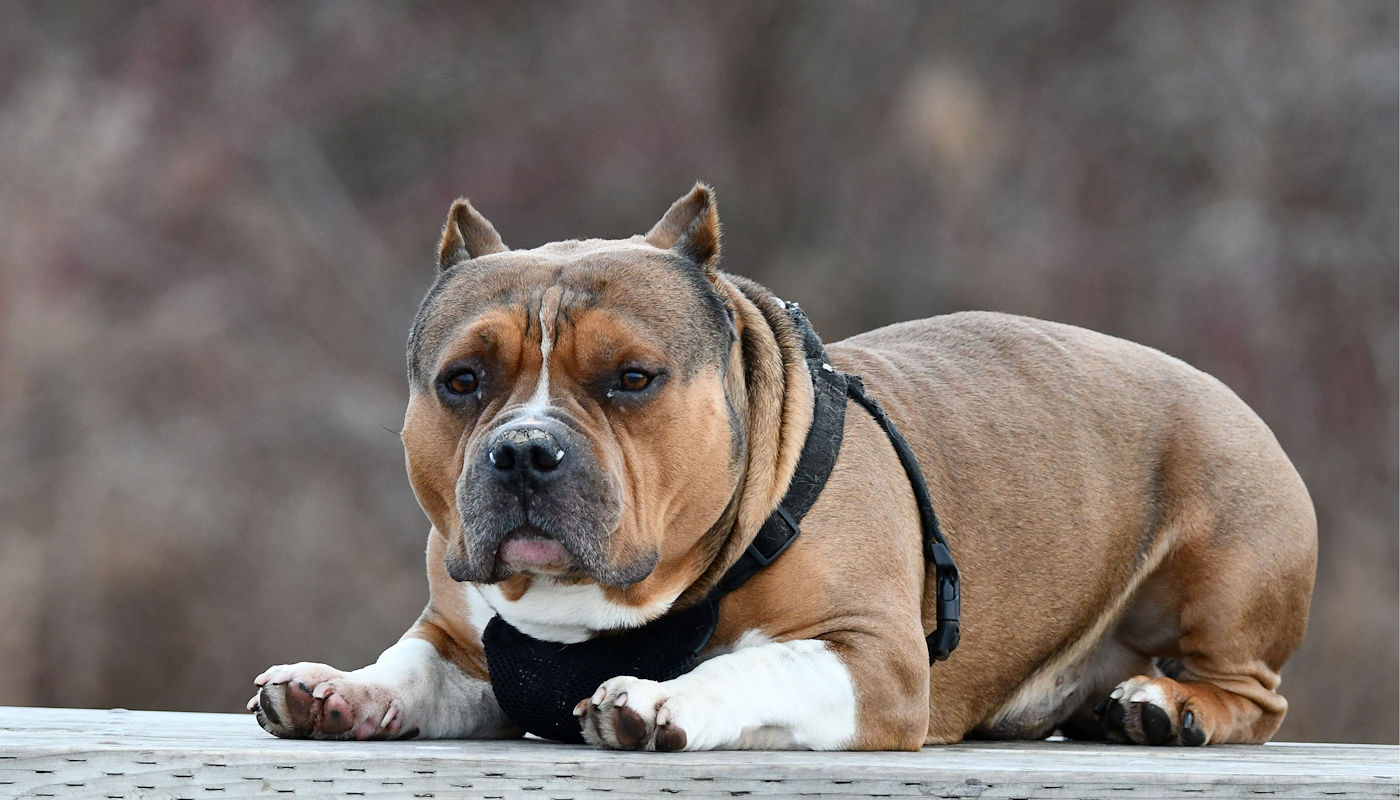

What is the American Bully Kennel Club & What Does it Do for Owners & Breeders?
American Bully Kennel Club (ABKC)
From Javi’s French Bulldogs & American XL Bullies Breeder | Sherman, TX
What is the American Bully Kennel Club & What Does it Do for Owners & Breeders?
American Bully Kennel Club (ABKC)
From Javi’s French Bulldogs & American XL Bullies Breeder | Sherman, TX
The American Bully Kennel Club (ABKC) is a non-profit organization that was founded in 2004 to promote and preserve the American Bully breed. The American Bully is a modern breed of dog that was developed as a companion dog, and originally standardized and recognized as a breed by the ABKC. The ABKC defines the American Bully as a breed that should give the impression of great strength for its size, with a muscular body and blocky head, and a gentle and friendly temperament [6]. The ABKC also recognizes other related breeds, such as the American Pit Bull Terrier, the American Staffordshire Terrier, the Olde English Bulldogge, the Shorty Bull, and the French Bulldog [26].
The ABKC is the largest and most reputable registry of American Bullies in the world, and it has a significant impact on the breed’s status and popularity. The ABKC aims to create a positive and inclusive community for Bully breed owners and to promote responsible dog ownership. The ABKC is also a recognized leader in the Bully breed community, offering registration services, shows, and events for Bully breed dogs and their owners.
If you’re ready for the expense and hassle of purchasing a purebred American XL Bully, it makes sense to register him as such with the registry specializing in the breed. Why invest in such an impressive animal if you don’t have bragging rights about his bloodline?
In this article, we will answer some of the most frequently asked questions about these registries, such as: (1) What is the ABKC, and when and why was it founded? (2) What are the benefits and services that the ABKC offers to dog owners and breeders? (3) How does the ABKC differ in its breed recognition, registration, and procedures from these other registries?
What is the ABKC (American Bully Kennel Club)?
The ABKC is a non-profit organization that was founded in 2004 to promote and preserve the American Bully breed. The American Bully is a modern breed of dog that was developed as a companion dog, and originally standardized and recognized as a breed by the ABKC [1]. The ABKC defines the American Bully as a breed that should give the impression of great strength for its size, with a muscular body and blocky head, and a gentle and friendly temperament. The ABKC also recognizes other related breeds, such as the American Pit Bull Terrier, the American Staffordshire Terrier, the Olde English Bulldogge, the Shorty Bull, and the French Bulldog [3].
Why was the ABKC organized? What is significant about the ABKC founders?
The ABKC was organized to create a registry that would cater to the needs and interests of the American Bully breeders and enthusiasts, who felt that the existing registries did not adequately represent their breed. The ABKC founders were passionate about the American Bully and wanted to establish a breed standard, a code of ethics, and a platform for showcasing the breed [4]. The ABKC founders were also involved in the development and evolution of the American Bully breed, by selectively breeding dogs from various bully-type breeds, such as the American Pit Bull Terrier, the American Staffordshire Terrier, the English Bulldog, and the Mastiff.
How does the ABKC help ensure standards related to new breed development, genetic safety issues regarding possible cross breeding issues, establishment of best practices regarding breeding and related issues?
The ABKC helps ensure standards related to new breed development, genetic safety issues, and best practices by providing registration services, pedigree information, and educational resources for breeders and owners. The ABKC also conducts inspections and investigations to verify the authenticity and health of the registered dogs and to enforce the code of ethics [6]. The ABKC also organizes shows and events to evaluate and promote the breed, and to encourage responsible breeding and ownership [7].
What type of information does the ABKC offer to the general public to help them decide which type of American Bully or related breed they recognize is most suitable for their life style (or visa versa), warn of health issues that are common to various breeds, and offer detailed comparisons of the various dog breeds to help persons decide which dog breed would be more likely to be one they would favor?
The ABKC offers information about the history, characteristics, temperament, and health of the American Bully and the related breeds on its website [8] and on its social media accounts [9]. The ABKC also provides a list of approved breeders and judges, as well as a calendar of upcoming shows and events. The ABKC also publishes a magazine called The Bully Bible, which features articles, interviews, photos, and tips about the breed [11]. The ABKC also hosts “Meet the Breeds” events, where the public can interact with breeders and dogs, and learn more about the breed [12].
What are the benefits of registering your dog with the ABKC, AKC, UKC or Continental Kennel Club and how do they compare?
Registering your dog with the ABKC, AKC, UKC or Continental Kennel Club can have various benefits, depending on your goals and preferences. However, the AKC and Canadian Kennel Club do not recognize the American Bully as a breed. Limiting registration options to the ABKC or Continental Kennel Club. Some of the benefits may include:
American Bully: The Pros & Cons of Owning One
The registries differ in the number of breeds they recognize, the criteria they use for registration, the fees they charge, and the events they offer. For example:
What do the requirements of registering your dog with the ABKC, AKC, UKC or Continental Kennel Club and how do they compare?
The requirements of registering your dog with the ABKC, AKC, UKC or Continental Kennel Club vary depending on the registry and the type of registration. Some of the common requirements are:
Some of the differences in the registry requirements of the with the ABKC, AKC, UKC or Continental Kennel Club are:
The ABKC requires a three-generation pedigree for registration but allows unknown dogs in the pedigree to be marked as open. The ABKC also allows dogs registered with other registries, such as the UKC or the ADBA, to be transferred to the ABKC [17].
The AKC requires a litter registration from the breeder and a DNA test for some breeds for registration. The AKC also allows dogs registered with foreign registries, such as the FCI or the CKC, to be transferred to the AKC [18].
The UKC requires a five-generation pedigree for registration, but allows unknown dogs in the pedigree to be marked as unknown. The UKC also allows dogs registered with other registries, such as the AKC or the ABKC, to be transferred to the UKC [19].
The Continental Kennel Club requires a four-generation pedigree for registration, but allows unknown dogs in the pedigree to be marked as unknown. The Continental Kennel Club also allows dogs registered with other registries, such as the AKC or the UKC, to be transferred to the Continental Kennel Club [20].
Does the ABKC allow mixed breeds and dogs with unknown pedigrees to participate in ABKC events? What is the ABKC policy on mixed breeds and dogs with unknown pedigrees?
The ABKC does not allow mixed breeds and dogs with unknown pedigrees to participate in ABKC events, except for fun shows and weight pull events. The ABKC policy on mixed breeds and dogs with unknown pedigrees is that they are not eligible for registration or recognition by the ABKC, and they cannot compete in conformation shows or other official events. The ABKC only accepts purebred dogs of the breeds and varieties that it recognizes, and it requires a photo and a pedigree of the dog for registration. The ABKC also conducts inspections and investigations to verify the authenticity and health of the registered dogs and to enforce the code of ethics [21].
Why did the founders or circumstances about the founders of the ABKC cause them to form a new registry/organization outside the AKC, UKC, and Continental Kennel Club?
The founders or circumstances about the founders of the ABKC caused them to form a new registry/organization outside the AKC, UKC, and Continental Kennel Club because they wanted to create a registry that would cater to the needs and interests of the American Bully breeders and enthusiasts, who felt that the existing registries did not adequately represent their breed. The ABKC founders were passionate about the American Bully and wanted to establish a breed standard, a code of ethics, and a platform for showcasing the breed [4]. The ABKC founders were also involved in the development and evolution of the American Bully breed, by selectively breeding dogs from various bully.
At Javi’s French Bulldogs & American XL Bullies Breeder, we not only want to provide you with the best value in your choice of the dogs we offer; we want to help inform you so that you make a choice that will be best for you and your pet – even if that means you realize that a French Bulldog or American XL Bullie is not for you!
In this article, “How to select a French Bulldog Breeder”, we hope to help you make an informed decision about whether a French Bulldog or American XL Bully is the right dog for you and your family.
